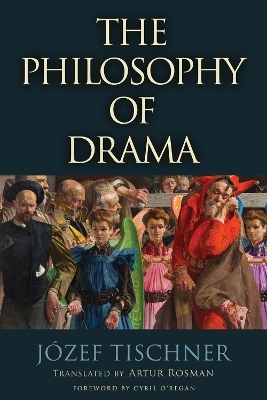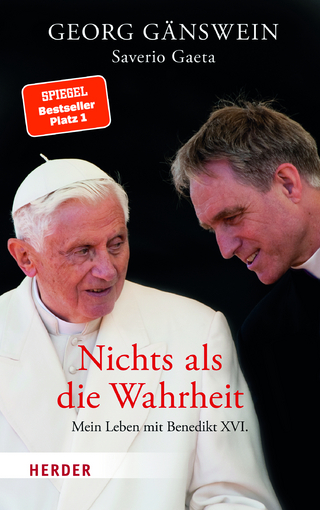
The Philosophy of Drama
Seiten
2024
University of Notre Dame Press (Verlag)
978-0-268-20883-7 (ISBN)
University of Notre Dame Press (Verlag)
978-0-268-20883-7 (ISBN)
The Philosophy of Drama provides an in-depth and erudite exploration of human existence as a dramatic existence, interpreted in terms of encounter, dialogue, reciprocity, erring, temptation, condemnation, and justification.
In this magnum opus, Catholic philosopher Józef Tischner offers a philosophical interpretation of the human experience and articulates a metaphysics of good and evil, arguing that the drama of existence is revealed most clearly through the painful encounter with evil. Long overdue for translation into English, The Philosophy of Drama is one of the most important works of Polish philosophy to date and a major contribution to phenomenology and the philosophy of dialogue.
Tischner writes of a drama that is at once personal and social, that is bound both by the stage of the present world and by the flow of time. It supposes human freedom while also recognizing the way in which human beings refuse to take responsibility for their freedom. It is a drama between divine and human freedom, on the one hand, and between the choice for good and evil, between humans as cursed or blessed, on the other. The Philosophy of Drama addresses the profound question of why we should be responsible for one another and for the world in which we live and is essential reading for anyone trying to understand what it is to be human.
In this magnum opus, Catholic philosopher Józef Tischner offers a philosophical interpretation of the human experience and articulates a metaphysics of good and evil, arguing that the drama of existence is revealed most clearly through the painful encounter with evil. Long overdue for translation into English, The Philosophy of Drama is one of the most important works of Polish philosophy to date and a major contribution to phenomenology and the philosophy of dialogue.
Tischner writes of a drama that is at once personal and social, that is bound both by the stage of the present world and by the flow of time. It supposes human freedom while also recognizing the way in which human beings refuse to take responsibility for their freedom. It is a drama between divine and human freedom, on the one hand, and between the choice for good and evil, between humans as cursed or blessed, on the other. The Philosophy of Drama addresses the profound question of why we should be responsible for one another and for the world in which we live and is essential reading for anyone trying to understand what it is to be human.
Józef Tischner (1931–2000) was one of the most influential Polish philosophers of the twentieth century and the semi-official chaplain of Solidarność. He was a Roman Catholic priest, served as professor at the Pontifical Theological Academy in Krakow, and was a cofounder of the Institut für die Wissenschaften vom Menschen in Vienna. Artur Rosman is an associate research professor at the University of Notre Dame and the editor-in-chief of Church Life Journal.
Introduction
1. The Event of the Encounter
2. The Answer to the Question, That Is, Reciprocity
3. Going Astray
4. Space for Intercourse with the Other
5. The Last Word of the Drama
| Erscheinungsdatum | 03.08.2024 |
|---|---|
| Übersetzer | Artur Rosman |
| Vorwort | Cyril O'Regan |
| Verlagsort | Notre Dame IN |
| Sprache | englisch |
| Maße | 152 x 229 mm |
| Themenwelt | Geisteswissenschaften ► Philosophie ► Philosophie der Neuzeit |
| Religion / Theologie ► Christentum ► Kirchengeschichte | |
| ISBN-10 | 0-268-20883-2 / 0268208832 |
| ISBN-13 | 978-0-268-20883-7 / 9780268208837 |
| Zustand | Neuware |
| Informationen gemäß Produktsicherheitsverordnung (GPSR) | |
| Haben Sie eine Frage zum Produkt? |
Mehr entdecken
aus dem Bereich
aus dem Bereich
von Athanasius bis Gregor dem Großen
Buch | Softcover (2024)
C.H.Beck (Verlag)
12,00 €


